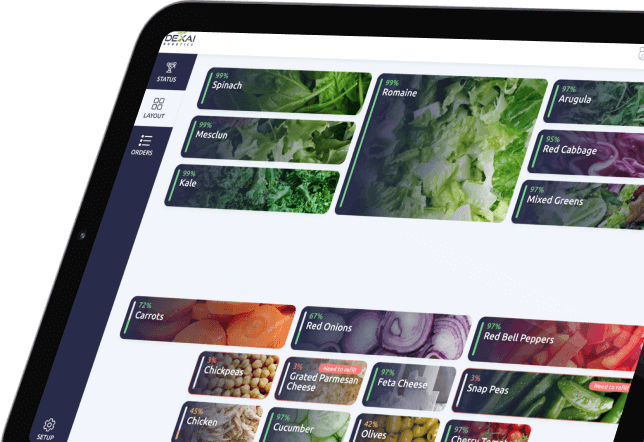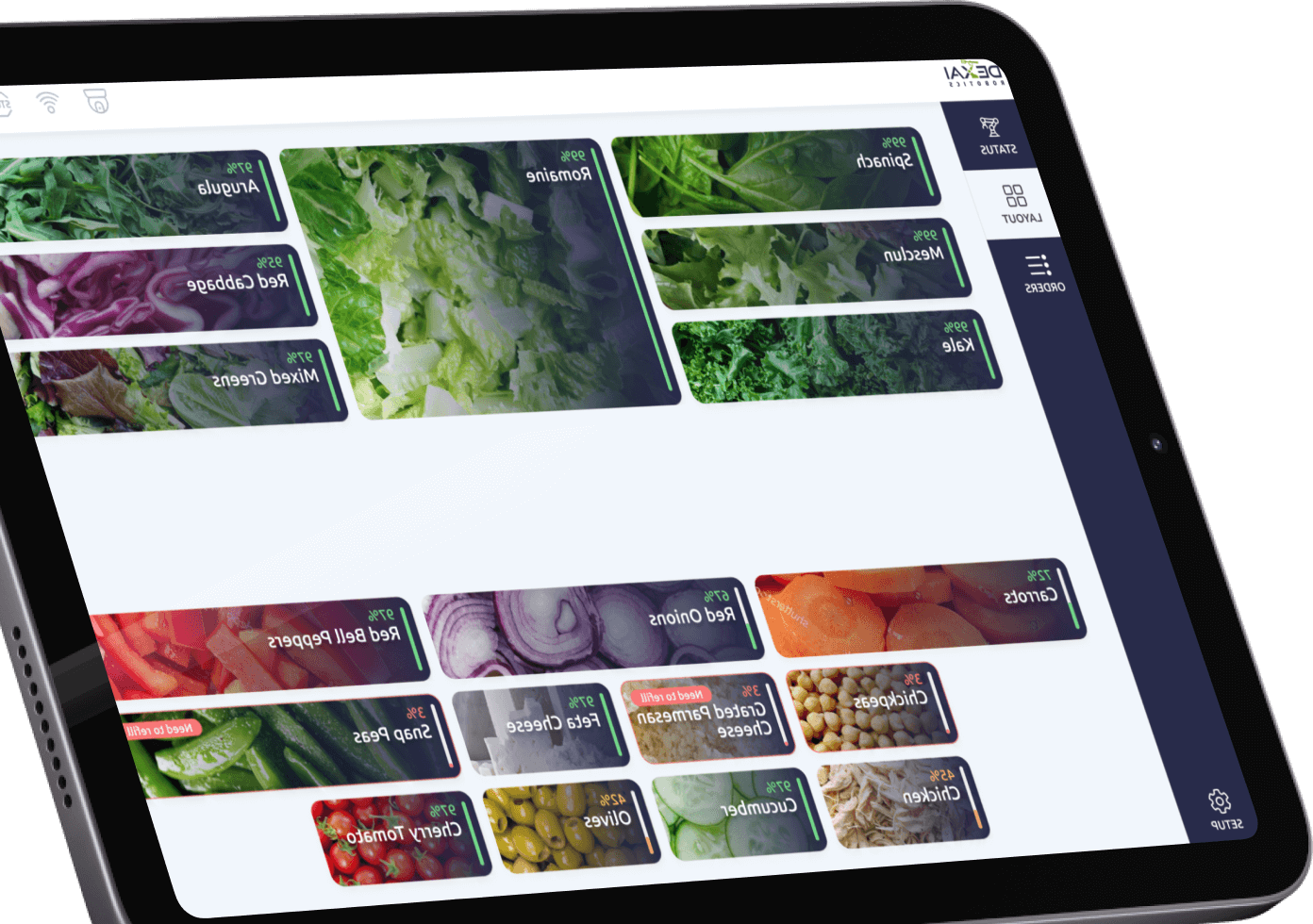Case Study: IoT apps for controlling an air conditioning system
Simple and neat native iOS and Android applications that connect directly through BLE to the firmware of the air conditioner system and allow control and management of environmental conditions.

Project details:
About the Client:
The Client is a multinational electronic company that manufactured a new air conditioner. We were commissioned to develop an application for this air conditioner to facilitate its market entry. There was a liaison between a manufacturer and us.
- Location – One Boston Place, Suite 2602 Boston, MA 02108, United States.
- Industry – Air Conditioning (AC) remote control.
- Team size – 6 specialists (Project Manager, Quality Assurance Specialist, 2 iOS Developers, 2 Android Developers).
- Project duration – 6 months.
Business сhallenge
We were responsible for the front and backend parts of the project. The biggest challenge was establishing a seamless connection between the air conditioner and the Android devices because of the variety of versions and gadgets Android has.
Additional requirements:
- a 2-week business trip to China at the start of the project;
- shared working space with the liaison’s team, enabling quick resolution of issues;
- official release of the iOS app version on the App Store.
Our solution
Our solution involved developing native iOS and Android applications that connect directly through BLE to the firmware of the AC system. This approach allowed for the control and management of the environmental conditions. We used native methods to establish a connection for both iOS and Android app versions, with a particular focus on overcoming the challenge of connecting various Android devices and versions. The successful implementation of these apps was critical in integrating the new air conditioning system into the market.
Dual user functionality
The application was uniquely designed to cater to two types of users: installers and consumers. The installer uses the app for advanced setup on-site during the installation and maintenance of the AC system. In contrast, the consumer utilizes the app to control the AC system, offering a user-friendly interface for managing their home environment.
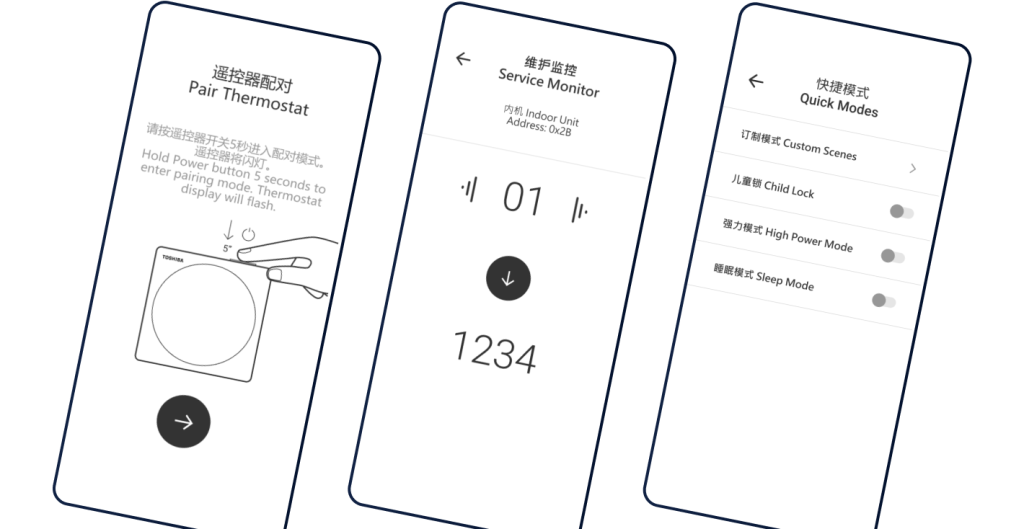
Additional features:
- Temperature management;
- Activity scheduling;
- Fan speed and louver control;
- Modes and custom settings;
- Service monitor and updates;
- Multilingual support (Chinese and English).
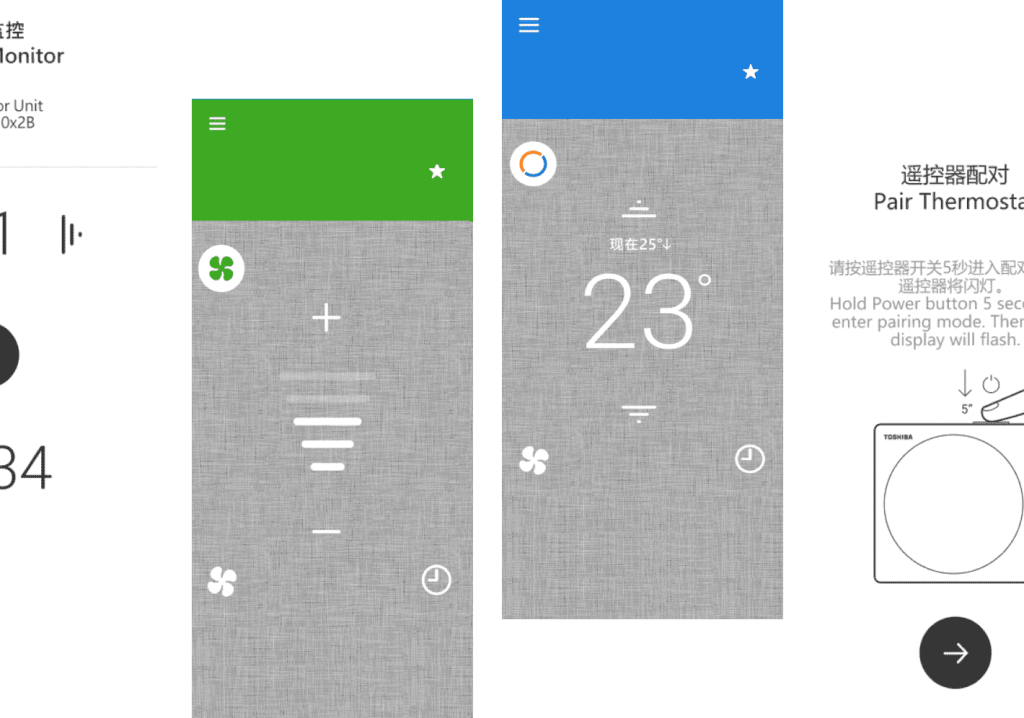
Business value
Before:
- The new air conditioner model was not yet ready for market launch due to the lack of a corresponding application.
- Consumers and installers had no means of digitally controlling or configuring the air conditioning system, leading to a limited user experience and operational inefficiencies.
After:
- With the development and integration of the application, the air conditioner became market-ready, opening up opportunities for sales and distribution.
- The app provided both installers and consumers with the ability to control and manage the air conditioner, significantly enhancing user interaction and operational efficiency.
Have an app idea?
Let’s start with a free quote!
See our other case studies
Smart hotel management system
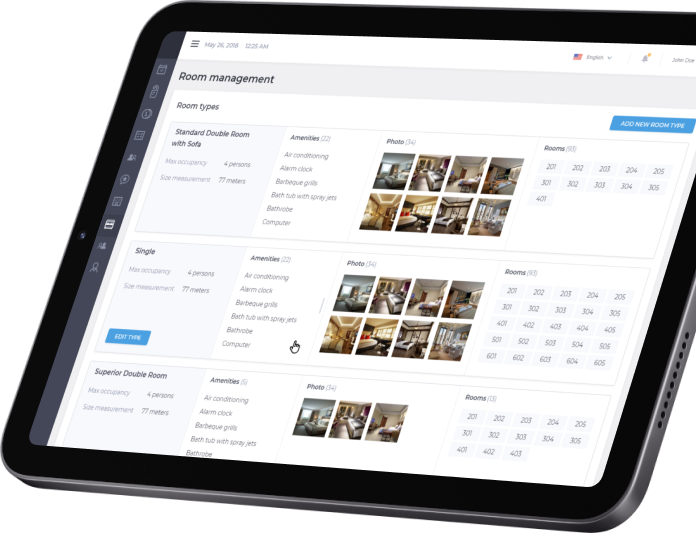
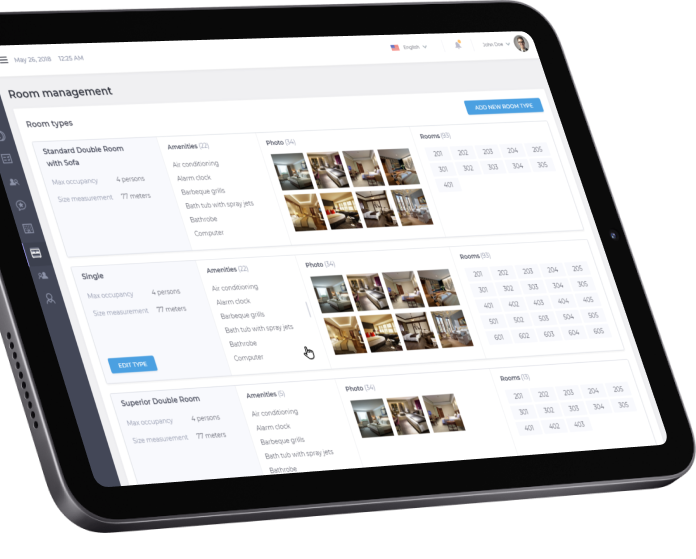
IoT application with sensors for industrial fridge monitoring
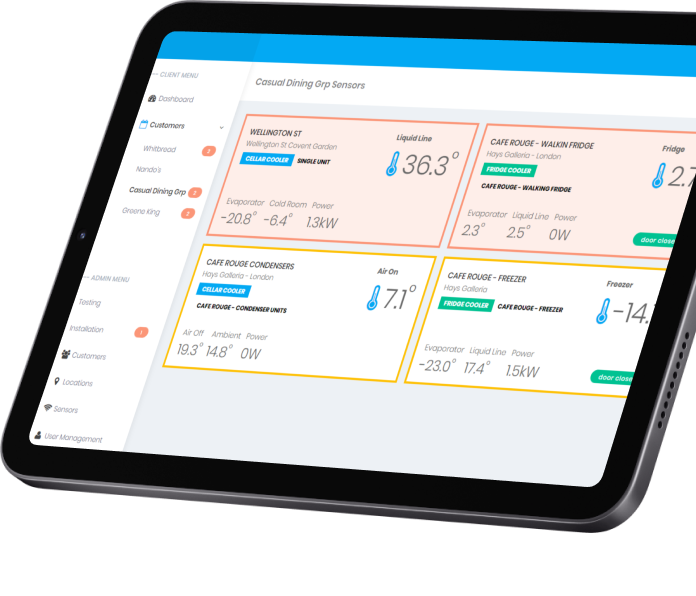
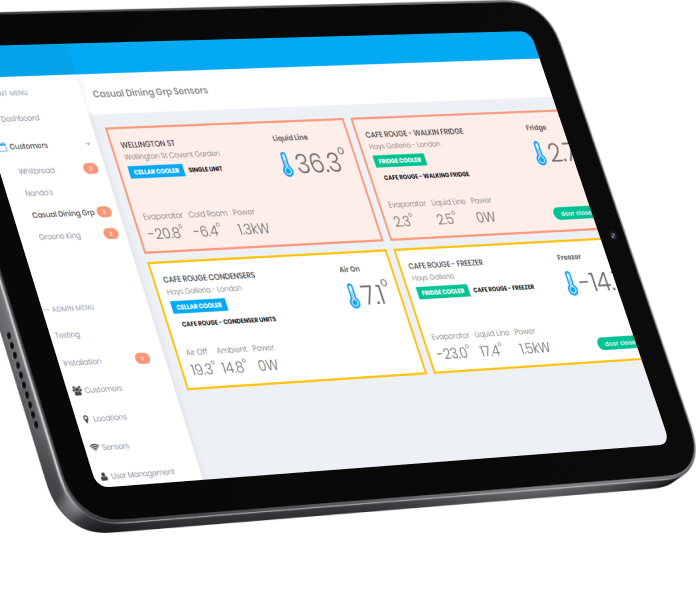
Graphical user interface for robot operation
